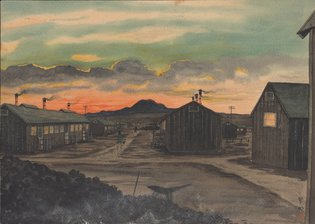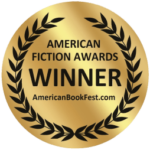Hope for the Future
After having a pretty solid writing career for thirty years, I’ve watched things sour over the past several. I’m still writing, and I believe my stuff is as good as it’s ever been, but I’ve run out of luck in the submission part of the job. Why is that? I’ve wondered, and although there are no clear answers, there are likely candidates: changes in the publishing business (mergers, acquisitions, all that); changes in the makeup of the decision makers; the business has passed me up; the business is no longer buyin’ what I’m supplyin’, or the reverse, I’m not able to supply what they’re buyin’; publishers have given up on trying to appeal to boy readers; there’s more and better competition; my age is the first thing the slush-pile intern checks when she gets one of my submissions, and she ain’t going for some guy who’s got one foot in the grave. All possibilities, but I suppose it doesn’t matter so much what’s going on. I’m still writing, still submitting, and I don’t foresee giving up. This job, or pastime, or whatever it’s become or will become, is what I love to do. So I’ll keep at it.
I do have some negative days and weeks and months, though, so it’s maxi-encouraging to get some positive feedback now and then on what I’m doing. And a few days ago, I received an email from an eighth-grade reader in Illinois who not only gave me some positive words on my writing but also greatly impressed me with his own writing ability, his thoughtfulness, his articulateness, his maturity. We hear a lot about how “these kids today” are slipping into educational know-nothingness, and it’s easy to just accept that point of view, but here’s a young person whose gifts belie that notion. For your reading pleasure:
Hello Mr. Patneaude, I recently finished reading your book Thin Wood Walls, and I just wanted to take a moment to thank you for writing such a powerful and moving story.
From the very beginning of the book, I was drawn in by Joseph’s voice and the way you brought his world and thoughts to life. The story felt so real and emotional, as if someone was telling me the story in real time. In Thin Wood Walls, you taught me more about Japanese-American internment during World War II than history books have, because you highlighted their pain, struggles, fear, and resilience.
What really stayed with me was the unbroken bond between Joseph and his family, especially his relationship with Mike, even after he died. Their letters were some of the most heartfelt parts of the book for me. That really resonated with me because I feel the same for my family. The way you showed the hope, courage and honor of a group of people whose own country turned their back on them is really inspirational.
You may be asking, however, when and where I learned about your work. A few months ago, during the first quarter of ELA in the revenge stories unit, I read The Spirit of Franklin Landry, and I fell in love with the story, its characters, and its ending. Over the next few quarters I started reading your work and submitting them for my book projects. In this way, I read Someone Was Watching and Thin Wood Walls. For my 4th quarter book project, I decided to email an author, and I realized that over the course of the past year, I had read your work more than any other author’s work. I realized that out of all the other authors whose books I’ve read, your work left me with a lasting impact that I don’t think will ever go away. So for my favorite author, and as a writer coming into action, I have a couple of questions!
1. How do you approach writing in the perspective of someone vastly younger or much older than you? Sometimes I forget what it was like to be younger, and I really don’t know what it is like to be older. When I read Thin Wood Walls it felt like a young boy was writing to me, a young boy who had vividly experienced everything he wrote about, with a child’s hopes, dreams, and struggles. How do I achieve this, since I do find it a bit difficult to completely replicate, in my work, the aspirations of different ages?
2. How much do you plan when writing a short story? I understand that writing a book needs proper time for the brainstorming process, but what about short stories? Usually, when I write short stories, I tend to just jump right into the story, molding and twisting as I go. I have an idea of what is going to happen, but sometimes I veer off course and take a different path. I can tell that The Spirit of Franklin Landry is a well thought out story, but I would really like to know how you planned out the story and how you came up with ideas!
3. Finally, a rather basic question. What is your favorite part of being a writer?
I have copied my teacher to this email. Thank you for your time Mr. Patneaude, and I really hope to hear from you very soon!
Yours Sincerely,
Samarth A
8th Grade
Take that, all you doom-and-gloom-ers!
(Last name and other identifiers withheld–by me–to protect the gifted)

 Previous Post
Previous Post




